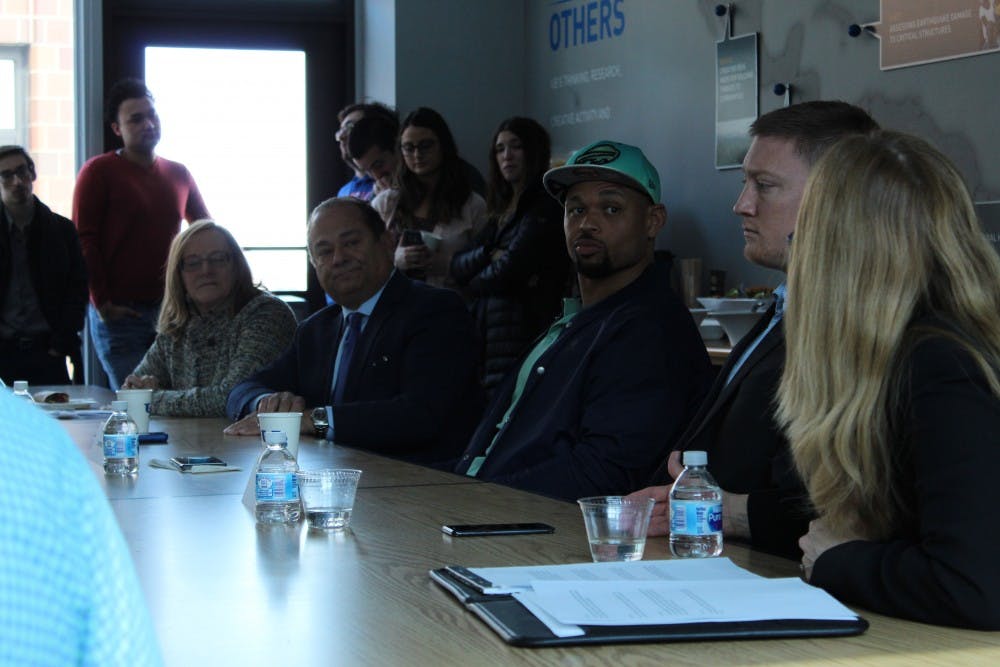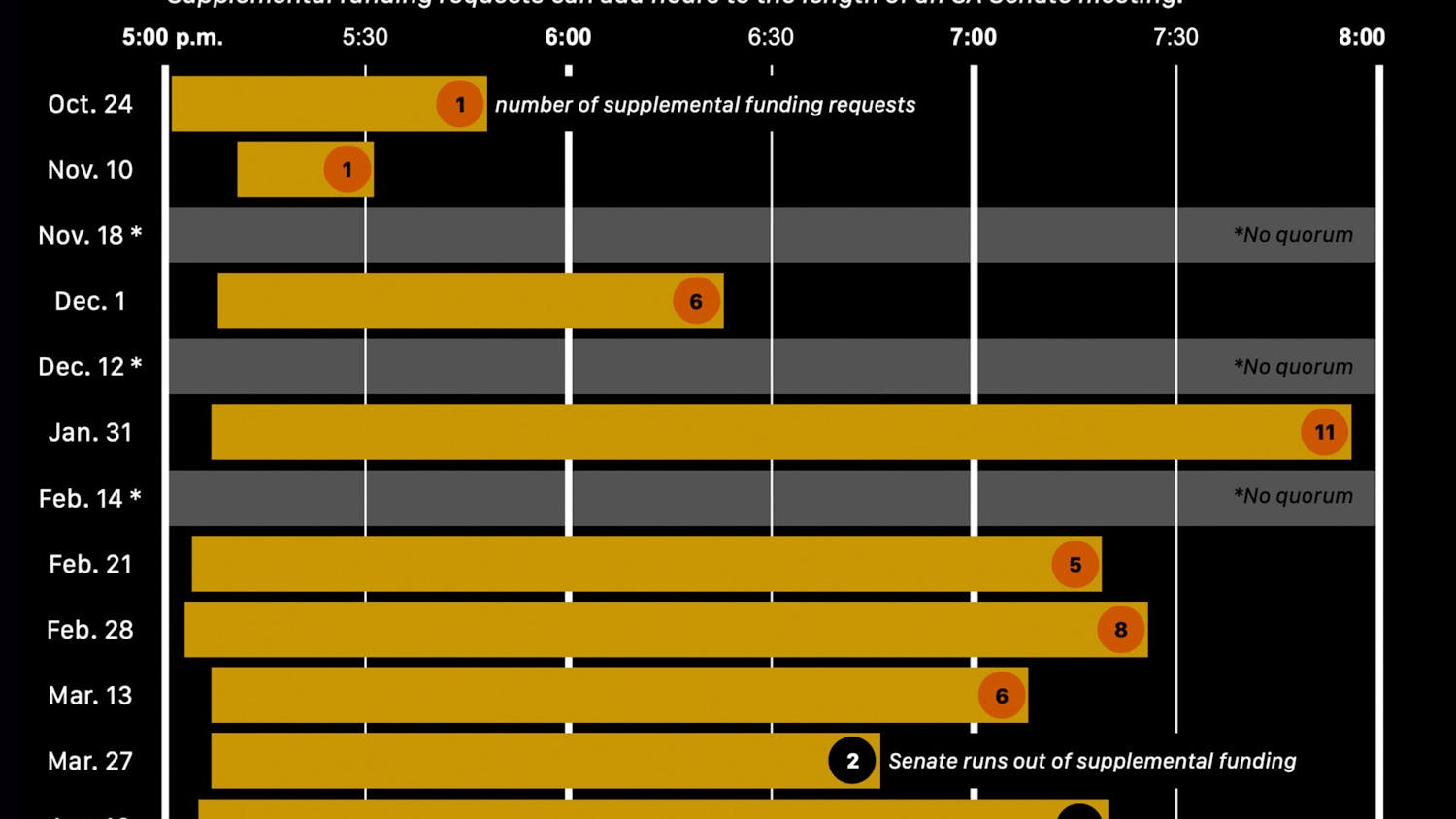Public universities can’t punish student athletes for protesting or speaking with the press, according to professional athletes, lawyers and professors who spoke at a Capen Hall panel on Thursday.
Roughly 50 students, faculty and staff attended the event, Freedom of Expression: The First Amendment and Athletics, organized by Helen Drew, director of the Center for the Advancement of Sport. Panelists discussed First Amendment rights for athletes, focusing largely on former NFL player Colin Kaepernick’s demonstrations. Panelists discussed the distinction between his rights as an American citizen and his rights as an employee of a private organization –– the NFL.
Panelists Lorenzo Alexander, linebacker for the Buffalo Bills, former professional baseball player Shane Costa, local attorney Paul Cambria and law professor Lucinda Finley, weighed in on Kaepernick’s experience and discussed the legality of athletes speaking out.
Finley, a First Amendment attorney, said UB student athletes have more freedom to speak out than professional athletes because UB is a state school and organizations like the NFL are private.
“According to the NCAA and the university, college athletes are students first,” Finley said. “Therefore they have the same first amendment rights as any other student.”
A sports information director joins athletes when speaking to the media to help “craft a message that best reflects them and the university.” Finley said this does not infringe upon students’ rights because they are not being censored.
Alexander said this is similar to his experience in the NFL, where a public relations team attends all press events. PR representatives, while they don’t censor athletes in real time, ensure athletes’ comments do not negatively affect the team or organization.
Cambria, a nationally recognized First Amendment attorney, said people have “misconceptions” about what the First Amendment covers. He said there are exceptions to the First Amendment–– within private organizations, for example.
He called Kaepernick’s demonstration a “legitimate protest” within a “private club,” which is why NFL teams could legally refuse to sign him.
Alexander said the NFL didn’t necessarily care about Kaepernick’s actions, but cared about the demonstration’s effects on its “economics.” This, Alexander said, is when teams disassociated themselves from Kaepernick.
“All 32 owners, because they have an antitrust exemption, they cannot collude,” Alexander said. “[But] they can individually make a decision not to sign a guy.”
Cambria said “speech comes with consequences” and that, although someone may not face legal repercussions for their words or actions, they may face backlash.
Alexander kneeled for the national anthem during Bills games. He said the Bills’ ownership and coaching staff was willing to have “open and honest discussions about the issues,” which clarified what players were allowed to do, including kneeling.
Alexander said NFL players with “more power” have more freedom to express their views, but said movements have more of an impact when players stand –– or kneel –– together.
“At the end of the day, guys are able to move and do and say things based on who they are and leverage,” Alexander said. “So a guy like Peyton Manning, Aaron Rodgers, names like that, they have a little bit more freedom than some other guys. But there's also strength in numbers, too, because you can't cut everybody.”
Nathaniel Mendelson and Jacklyn Walters are editors and can be reached at news@ubspectrum.com

Jacklyn Walters is a senior communication major and The Spectrum's managing editor. She enjoys bringing up politics at the dinner table and seeing dogs on campus.





